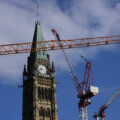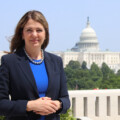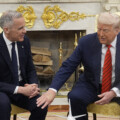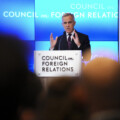A lot of the commentary about the Liberal government that will succeed Justin Trudeau’s assumes that it will be short-lived. That’s probably the best bet over the coming weeks. With the Bloc Quebecois, Conservatives, and New Democrats committed to voting non-confidence against the government at the first opportunity, it’s seemingly only a matter of time before we’re subjected to an election.
The Liberals will announce a new leader on March 9, Parliament is set to return on March 24, and reports are that the first confidence vote could be as early as March 26. That potentially leaves less than three weeks for the new prime minister before he or she is forced into a campaign and their probable defeat.
But what if the government can avert a confidence vote or extend its lifespan through these early confidence votes (including the Speech from the Throne) and a potential 2025 budget? What if it can even get to the G7 summit in June when the prime minister will chair the meeting of major world leaders? And what about the fixed election date in October? Could the government possibly go beyond it?
Any one of these scenarios requires that the government secures the support of some number of opposition parties. Notwithstanding Jagmeet Singh’s insistence that he will vote against a government led by any new Liberal prime minister, it’s not implausible to think that Mark Carney or Chrystia Freeland might be able to persuade him to change his mind with offers of cabinet posts, electoral reform, or progress on other NDP priorities.
The New Democrats will never be in a stronger position to extract concessions in a world in which Carney or Freeland are desperate to prolong their fragile prime ministerships. Singh and his team might therefore be prepared to revisit their unequivocal promise to immediately vote down the government.
Given their personal backgrounds and political instincts, one could envision that Carney or Freeland would be quite keen to host the G7. Presiding over the summit of major global leaders would be a nice consolation for assuming the party leadership in such difficult circumstances. It would represent an opportunity for either to etch his or her name in the history books even if their prime ministership is ultimately short-lived.
Extending the government to the G7 meeting in June would presumably mean completing the four-year term to the fixed election date in October. Parliament would recess in June and wouldn’t come back before the unofficial campaign started soon thereafter and officially kicked off in early September.
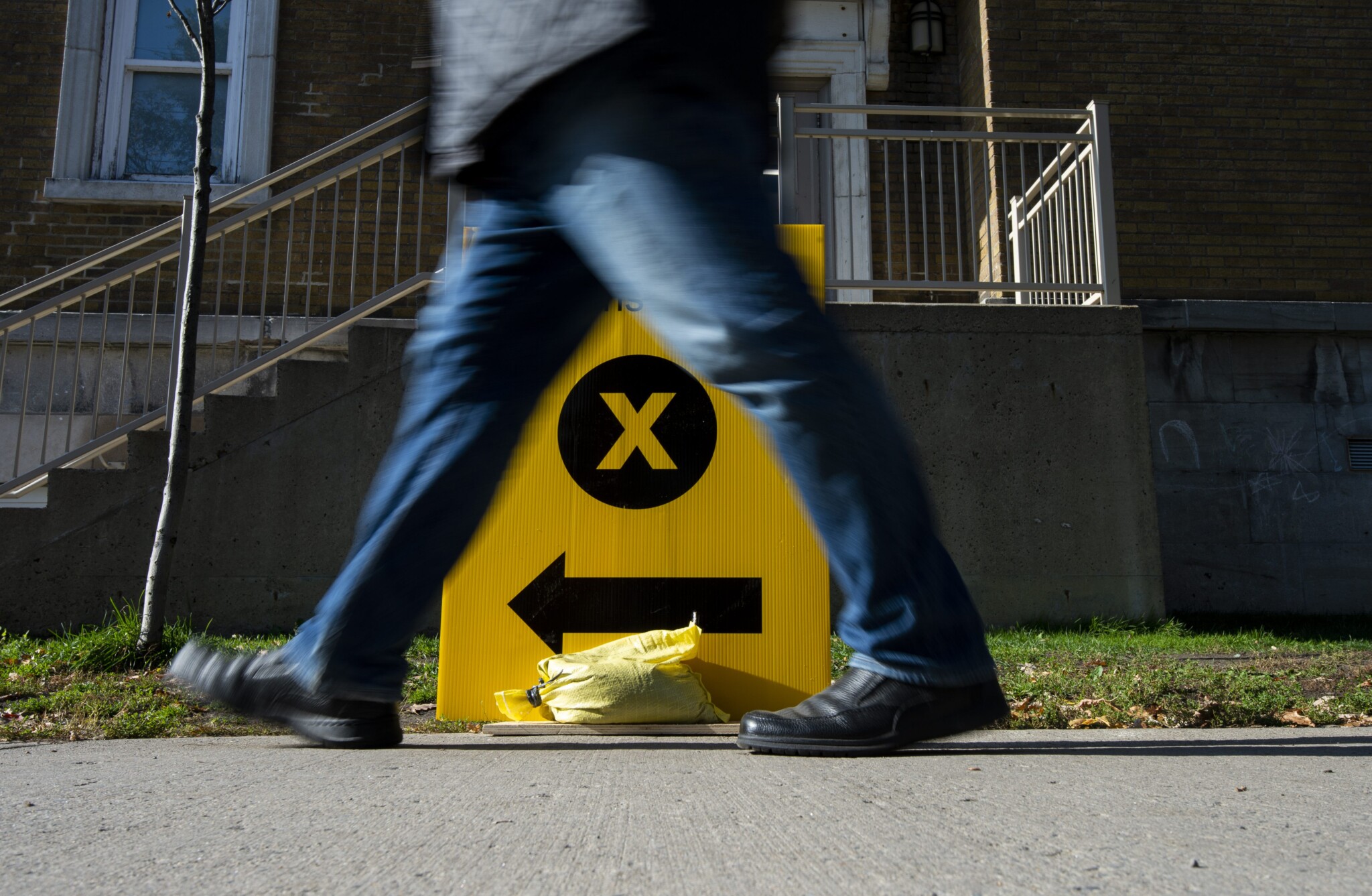
A person walks towards a polling station on election day of the 2019 federal election, in Ottawa, Monday, Oct. 21, 2019. Justin Tang/The Candian Press.
But if we’re entertaining hypothetical scenarios, it’s possible for a Carney- or Freeland-led government to more controversially go beyond the fixed election date. The four-year fixed election date in October 2025 is set out in the Elections Canada Act. But as Carleton University professor Philippe Lagassé recently explained at The Hub, the Constitution only requires an election every five years. The government could therefore amend or repeal the legislated election date or possibly even ignore it altogether.
(We’ve consulted with various lawyers on this question and gotten mixed perspectives rooted in a legalistic debate about whether the legislation is “directory” or mandatory—though in this scenario if the NDP was propping up the government, it could, in theory, support a legislative amendment.)
Extending the government beyond the four-year term limit would no doubt be contentious. It would arguably be even more controversial if Carney was the prime minister given that he wouldn’t at least start with a seat in the House of Commons. As a matter of politics, it would therefore be a high-risk strategy—one that could even do greater damage to the government’s already poor political standing.
But if the new prime minister faces mere days or weeks before an election campaign, it may be viewed as a worthwhile bet compared to the alternative. Presumably, the political gamble would be that the short-term opprobrium would eventually be offset by the potential gains. Maybe the government uses the extra time to provide some budget goodies or secure a deal with the Trump administration or even permit the Conservatives to succumb to their own unforced errors. At minimum, it would enable the prime minister to extend his or her time in office beyond Charles Tupper or John Turner or Kim Campbell, who served in the role for just 68, 79 and 132 days respectively.
This may seem like an improbable scenario—and it indeed might be. But it’s not implausible. Especially when compared to the probable outcome which amounts to walking into electoral buzzsaw mere weeks after winning the Liberal Party leadership and becoming prime minister.
As the leadership race kicks off, these are precisely the types of questions that the news media ought to be asking of the candidates. What’s their political intention? What are they prepared to give up to the NDP to stay in power? And are they willing to blow past the fixed election date?
Liberal partisans may be selecting Canada’s next prime minister. But the rest of us have an interest in knowing Carney and Freeland’s answers to these pressing questions.




